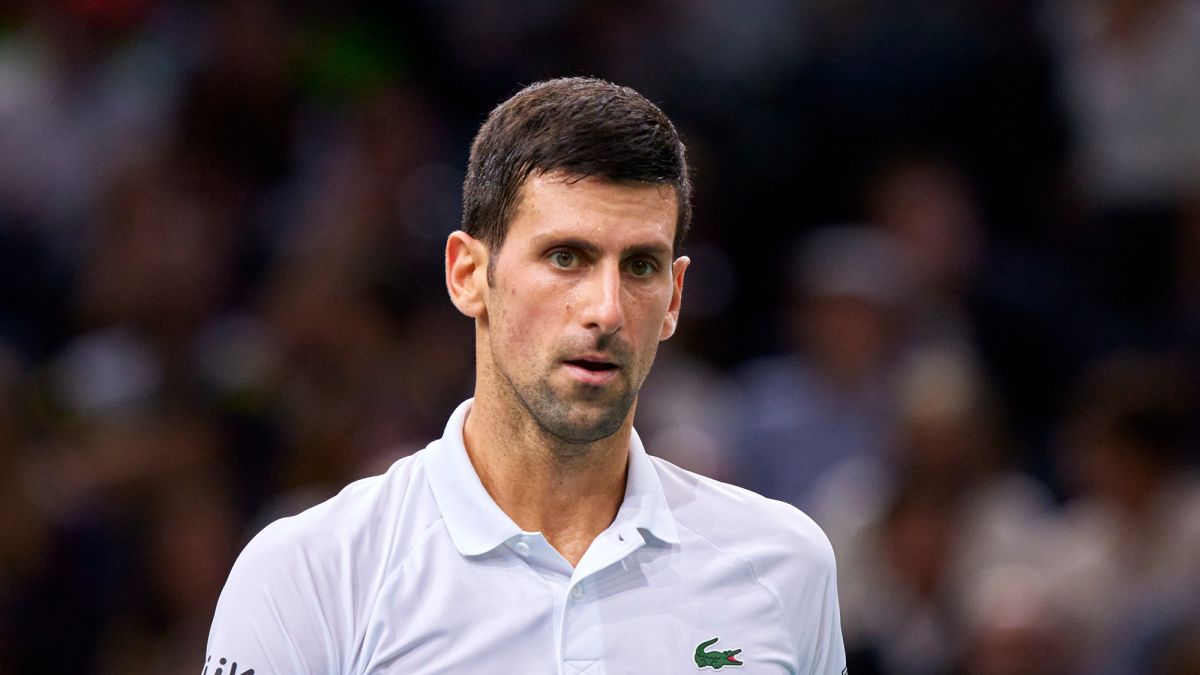MELBOURNE, (Reuters) – Unvaccinated tennis star Novak Djokovic today asked an Australian court to block his deportation ahead of the Australian Open after the government cancelled his visa for the second time over COVID-19 entry regulations.
The government nevertheless ordered that he return to pre-deportation detention at 8 a.m. (2100 GMT Friday) on Saturday, albeit with permission to meet his lawyers at their offices.
Djokovic’s legal team submitted their request for an injunction late at night, less than three hours after Immigration Minister Alex Hawke used discretionary powers to revoke the visa.
The world tennis number one, bidding for a record 21st Grand Slam trophy in defending his Australian title, had been told on arrival on Jan. 5 that his visa, granted on the basis of a medical exemption from a vaccination requirement for visitors, was invalid.
The 34-year-old Serbian spent several days in immigration detention, in a hotel also used for asylum-seekers, before that decision was revoked on procedural grounds.
Hawke said on Friday that he had “exercised my power under Section 133C(3) of the Migration Act to cancel the visa held by Mr Novak Djokovic on health and good order grounds, on the basis that it was in the public interest to do so”.
Under Section 133C, Djokovic would not be able to secure a visa to Australia for three years, except in compelling circumstances.
Judge Anthony Kelly said the government had agreed not to deport Djokovic before the case concluded.
The player’s legal team said Hawke had argued that allowing Djokovic to stay would excite anti-vaccination sentiment.
Although Djokovic has publicly opposed compulsory vaccination, he has not campaigned against vaccination in general, and his lawyers called Hawke’s decision “patently irrational”. They said they hoped their challenge could be heard by Sunday, the day before the tournament starts.
The controversy has intensified a global debate over the rights of the unvaccinated, and become a tricky political issue for Prime Minister Scott Morrison as he campaigns for an election due by May.
While Morrison’s government has won support at home for its tough stance on border security during the pandemic, it has not escaped criticism for the seemingly inconsistent handling of Djokovic’s visa application.
“Australians have made many sacrifices during this pandemic, and they rightly expect the result of those sacrifices to be protected,” Morrison said in a statement.
“This is what the minister is doing in taking this action today. Our strong border protection policies have kept Australians safe,” he said.
Djokovic was included in the draw as top seed and due to face fellow Serb Miomir Kecmanovic on Monday in his opening match.
Looking relaxed, he had practised serves and returns with his entourage on an empty court at Melbourne Park earlier on Friday, occasionally resting to wipe sweat from his face.
Hawke said he had carefully considered information from Djokovic and Australian authorities, adding the government was “firmly committed to protecting Australia’s borders, particularly in relation to the COVID-19 pandemic”.
Australia has endured some of the world’s longest lockdowns, has a 90% vaccination rate among adults, and has seen a runaway Omicron outbreak bring nearly a million cases in the last two weeks.




